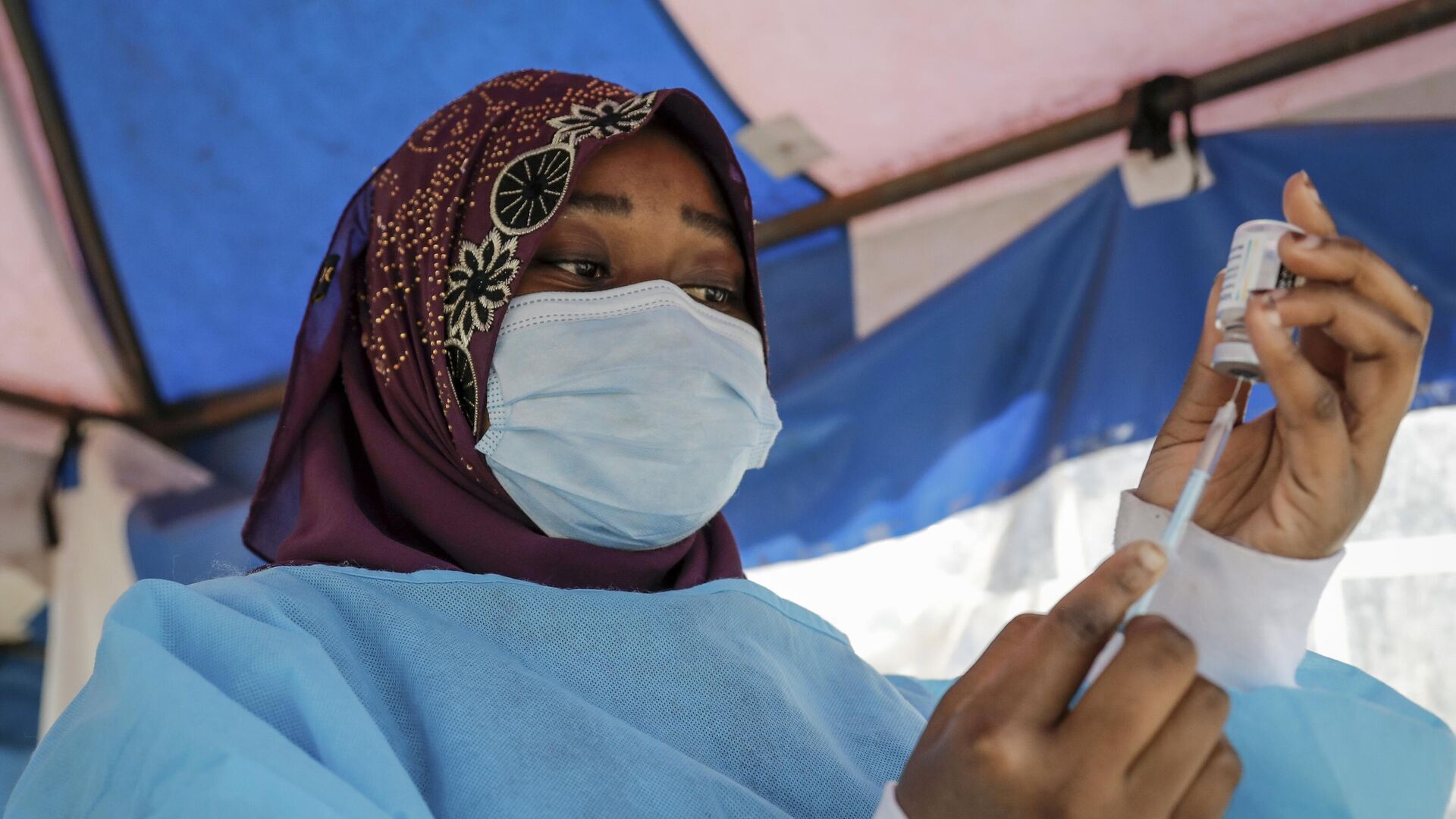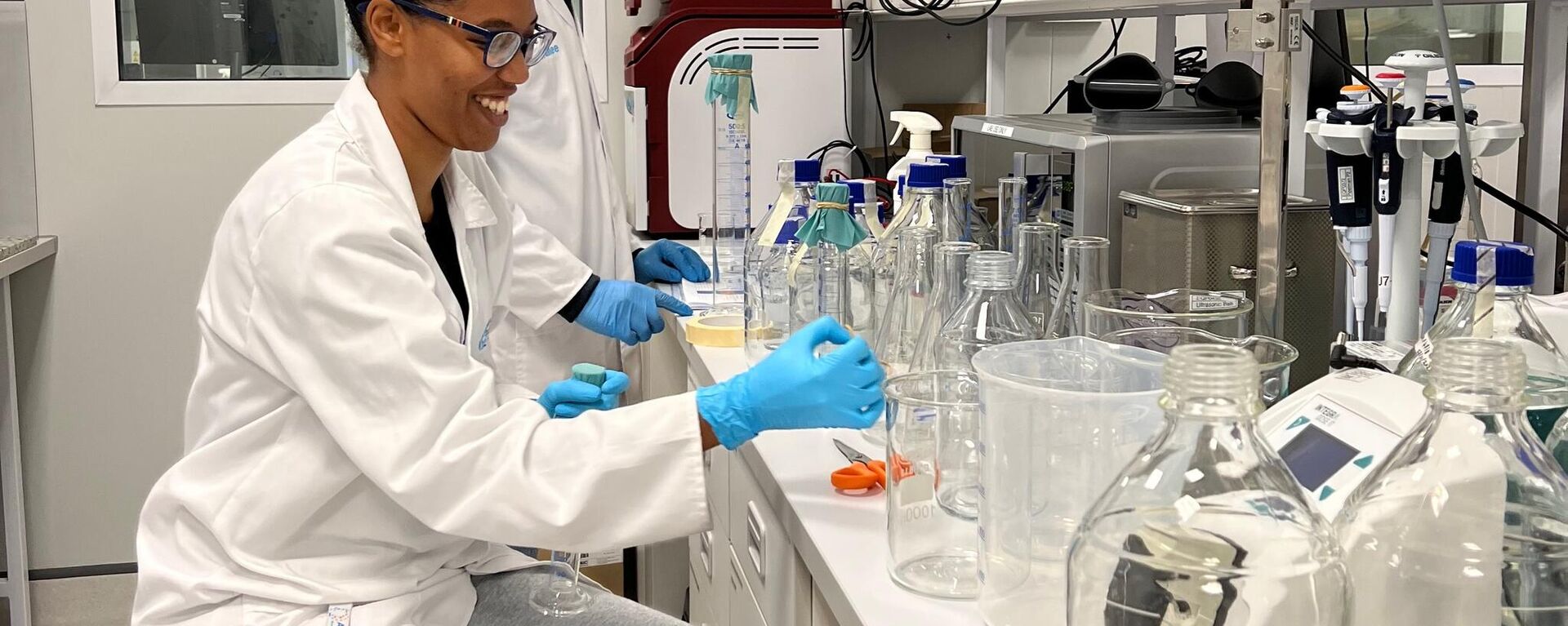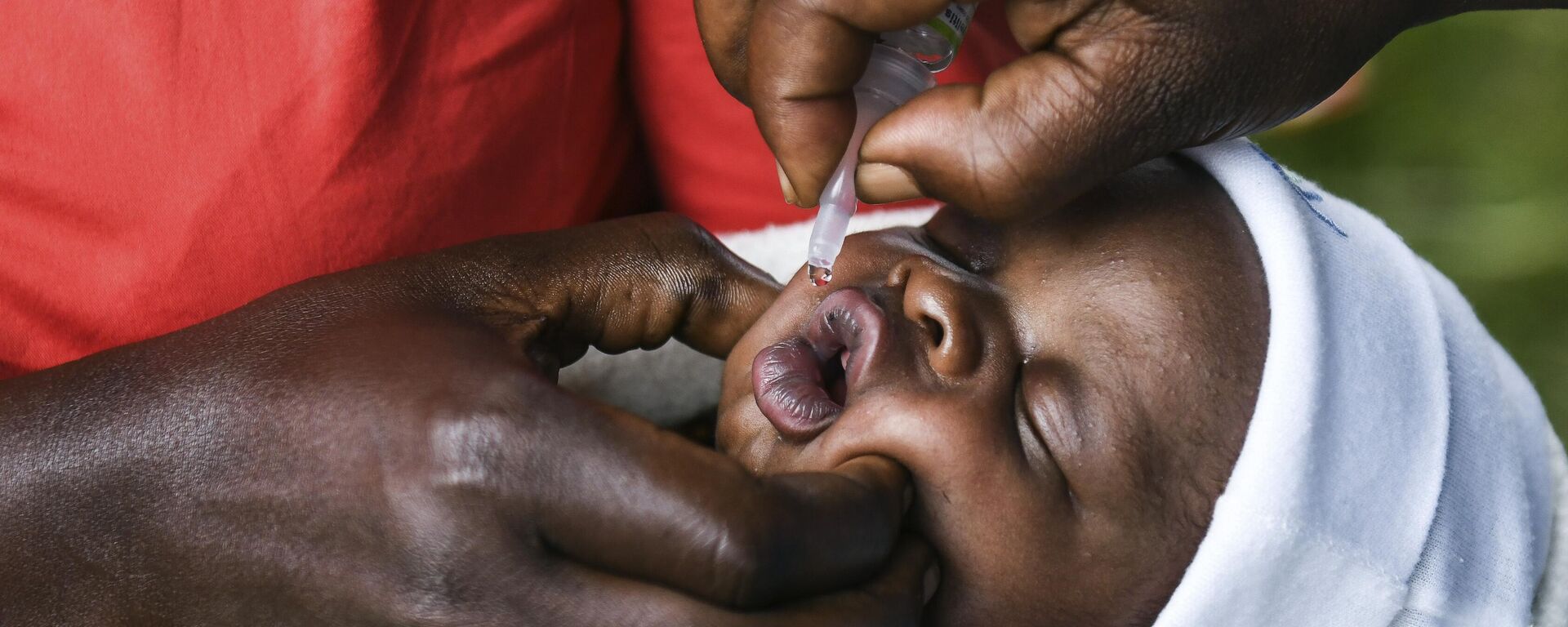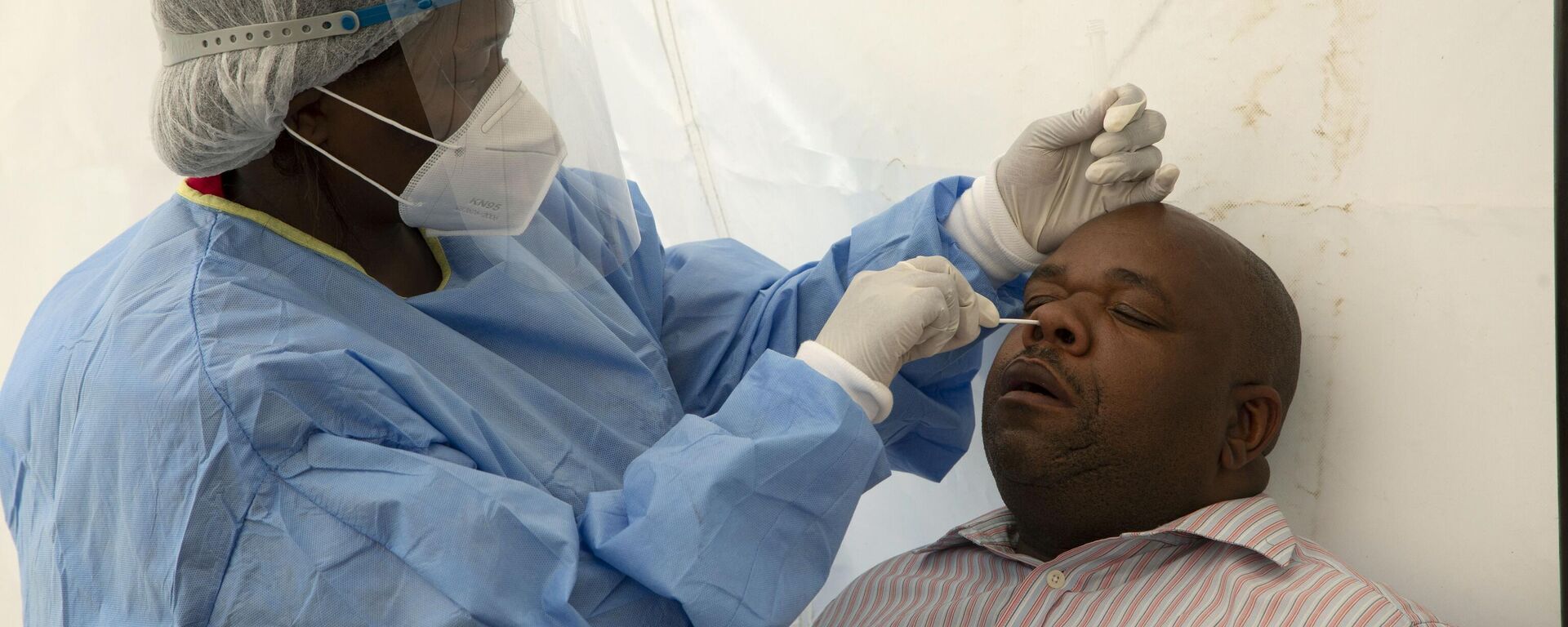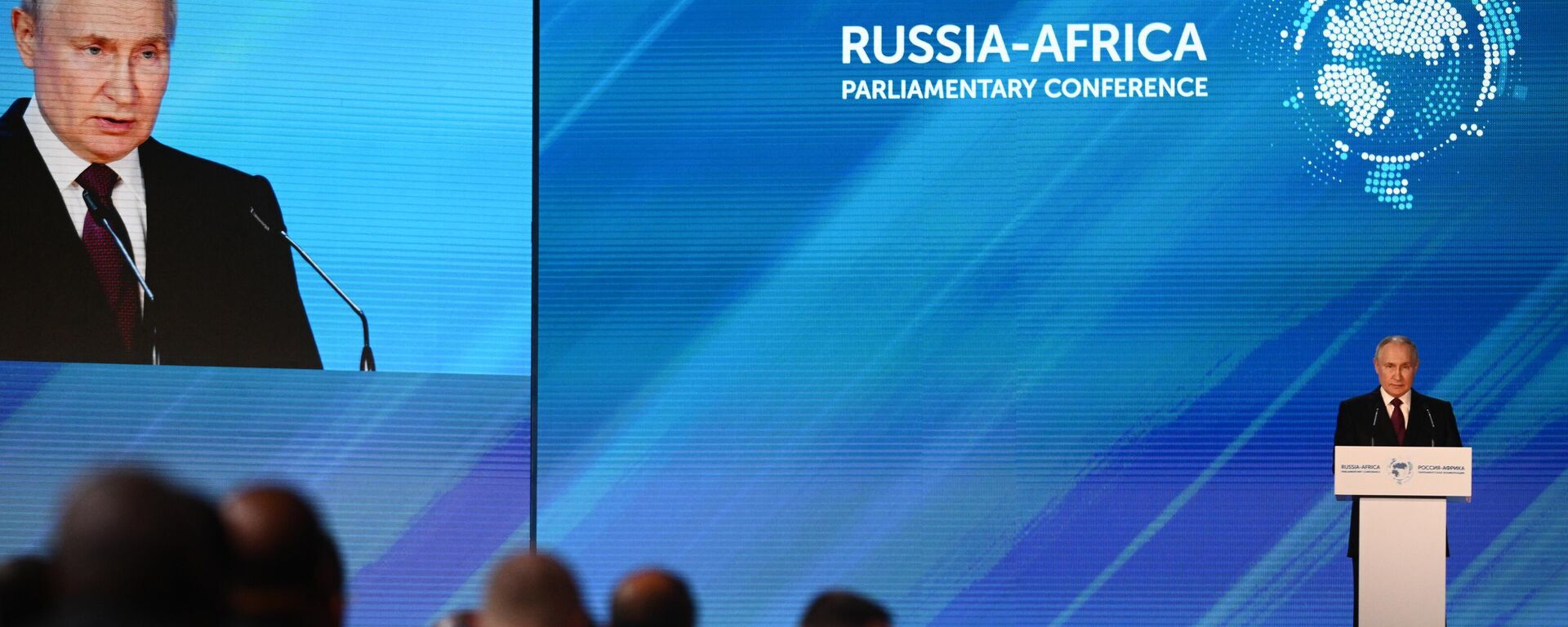https://en.sputniknews.africa/20230424/world-immunization-week-what-challenges-does-africa-face-1058778341.html
World Immunization Week: What Challenges Does Africa Face?
World Immunization Week: What Challenges Does Africa Face?
Sputnik Africa
The World Immunization Week 2023, which is celebrated in the last week of April from 24 to 30. On this occasion, Sputnik provides some insight into the continent's most glaring issues in the field of preventive medicine.
2023-04-24T07:59+0200
2023-04-24T07:59+0200
2023-12-02T10:34+0100
features
vaccine
world health organization (who)
healthcare
malaria
disease
world immunization week
pandemic
https://cdn1.img.sputniknews.africa/img/07e7/04/16/1058781693_0:0:3071:1728_1920x0_80_0_0_2c16cd8da4fc7b70b473631d546e0232.jpg
The COVID-19 pandemic revealed various problems within healthcare systems of many countries all over the world, including African nations, forcing them to look for new approaches to their vaccination programs, producation and rollout. In particular, the continent's high dependence on imported vaccines was the main reason for the establishment of the first anti-COVID-19 vaccination center this Thursday. The mRNA hub, located in Cape Town, South Africa, is expected to "bring a paradigm shift" in solving the equity problem exposed by the pandemic with uneven vaccination coverage seen across the globe. With the same goal of reaching global health equity under the theme "the big catch-up", the WHO proclaims World Immunization Week 2023, which is celebrated in the last week of April from 24 to 30. During the week, the organization is aiming to highlight and raise global awareness of the importance of collective actions for protecting people from vaccine-preventable diseases. Moreover, the WHO dubbed this year as "an opportunity to catch-up on lost progress in essential immunization."On this occasion, Sputnik outlines major achievements of African nations on their path to universal immunization, as well as some insight into the continent's most glaring issues in the field of preventive medicine, vaccine availabilty and production. Africa's Lagging Behind? Even though the WHO calls the global immunization process a "development success story," it underlines that several regions, including Africa, are lagging behind in terms of providing universal access to vaccines. Despite some recent achievements, the continent demonstrates stagnated national and subnational immunization coverage rates. Throughout the years, vaccination programs in Africa faced different challenges associated with numerous internal and external factors. The major one is that the continent is not capable of producing large amounts of vaccines domestically. Currently, it produces approximately 0.1% of the global supply of vaccines. What happened during the pandemic can serve as an illustrative example, as despite the fact that the amount of COVID-19 vaccine doses produced in 2021 was in theory enough to protect almost everyone, many nations in Africa faced a severe lack of vaccines. According to the World Economic Forum (WEF), this could be attributed to vaccine hoarding and export restrictions imposed. Thus, the continent with limited regional vaccine manufacturing was placed at a disadvantage.There were also problems connected with a lack of regional vaccine supply across the continent and development capacity. At the time when the pandemic broke out, Africa had fewer than ten vaccine manufacturing facilities. Other major challenges faced by the continent include the slow onset of vaccination programs, limited funds, concerns over vaccine safety and uncertainties, storage requirements and regulatory obstacles. It is worth mentioning that these challenges persisted for years, and the pandemic just brought them to the surface, acting as an "eye-opener," while making them even more acute. In this regard, the need to enhance vaccine supply resilience in Africa is obvious, as expanding vaccine manufacturing in Africa would reduce reliance on imports of COVID-19 vaccines and also contribute to the establishment of regional supply lines for a wide range of vaccines against other diseases. However, the WEF noted that such a move would imply the creation "of a multi-million industry almost from scratch." The lack of funding is another challenge for Africa. The continent's leaders repeatedly urge the world's community to pay more attention to the persistent problems within its healthcare systems. In particular, Senegal’s President Macky Sall called on African leaders to allocate more funds for routine immunization in Africa, as the COVID-19 pandemic halted global vaccination gains. The president made the call during the Forum on Immunization and Polio Eradication in Africa, in December last year. He emphasized that in 2021, about 25 million children all over the world missed out on vaccination because of the pandemic. The Senegalese leader pointed out that immunization rates should be restored in order to prevent the resurgence of vaccine-preventable diseases.Africa's Gearing Up to Close the GapsEven though various challenges persist, in less than a generation, the continent managed to make significant gains in increasing access to vaccination and reducing child deaths. The WHO in particular praised Africa's achievements, noting that several diseases are on the brink of eradication and elimination, including polio and maternal and neonatal tetanus, while the implementation of new vaccines is gradually uprooting age-old diseases. Several regional organizations, including the African Union (AU), embarked on ambitious programs in the areas of vaccine production and universal immunization. The AU has set a goal for Africa to develop, produce and supply over 60% of the vaccine doses required on the continent by 2040. This process has already begun, with over 30 vaccine manufacturing initiatives launched across Africa. In one example, Rwanda received six mobile vaccine production units last month developed by German pharmaceutical company BioNTech. The units called BioNTainers are made from recycled shipping containers and will be set up a hub producing vaccines to fight illnesses widely spread in Africa. The system is expected to allow end-to-end mRNA vaccine production on the continent. According to the company, the facility will be able to produce up to 100 million vaccines annually. Moreover, BioNTech is planning to send similar facilities to other African nations, such as South Africa and Senegal.The WHO also repeatedly noted that African nations have recently geared up to improve their healthcare systems following the pandemic crisis, which showed that the continent's health infrastructure is in dire need for more investment in order to resist future outbreaks. According to the WHO’s Africa Regional Director Matshidiso Moeti, the countries are preparing their health infrastructure to be ready for any future crises in the aftermath of the pandemic. Moeti stated that governments all across Africa have been investing in their health systems and increasing their capacities, aiming to close all the gaps revealed during the pandemic. Russia Steps Up Support for Africa But Africa is not alone on the road to improving immunization. Among other areas of cooperation, Russia in particular intends to increase interaction with Africa on such urgent topics including medicine and healthcare, as well as ensuring biological and epidemiological safety. Russian President Vladimir Putin, delivering his speech during the second Russia-Africa International Parliamentary Conference held in Moscow this March, reiterated that the country is willing to enhance cooperation with Africa in this field. According to the president, Russia is ready to provide drugs and mobile laboratories to the continent. Moreover, Putin recalled that during the COVID-19 pandemic, Russia was one of the first countries that began to supply large volumes of vaccines, test systems, sanitary and hygienic products, and other medical and humanitarian supplies to African countries.In December last year, Russia delivered 100,000 doses of domestically-produced vaccine Sputnik V to Djibouti. The Russian Ministry of Emergency Situations stated that the delivery of the Sputnik Light vaccine was carried out in accordance with the instructions of the government at Djibouti’s request. Thus, Russia is actively expanding its ties with the continent in this field with more and more nations reaching out to Moscow for support and assistance in battling health crises.
https://en.sputniknews.africa/20230421/africa-praised-by-who-after-it-launches-first-mrna-vaccine-center-1058741815.html
https://en.sputniknews.africa/20221211/1058781938.html
https://en.sputniknews.africa/20221209/1058782316.html
https://en.sputniknews.africa/20230320/1058782704.html
Sputnik Africa
feedback@sputniknews.com
+74956456601
MIA „Rossiya Segodnya“
2023
News
en_EN
Sputnik Africa
feedback@sputniknews.com
+74956456601
MIA „Rossiya Segodnya“
Sputnik Africa
feedback@sputniknews.com
+74956456601
MIA „Rossiya Segodnya“
sub-saharan africa, world immunization week 2023, healthcare, health facilities, immunization, world health organization, covid-19 pandemic, vaccines, vaccine manufacturing, vaccine production, cooperation
sub-saharan africa, world immunization week 2023, healthcare, health facilities, immunization, world health organization, covid-19 pandemic, vaccines, vaccine manufacturing, vaccine production, cooperation
World Immunization Week: What Challenges Does Africa Face?
07:59 24.04.2023 (Updated: 10:34 02.12.2023) Longread
According to the World Health Organization (WHO), immunization is seen as one of the most impactful public health policies that proves its effectiveness by preventing more than four million deaths annually. As nations across the world embark on universal immunization, Africa is trying not to be left behind making great strides in the realm.
The COVID-19 pandemic revealed various problems within healthcare systems of many countries all over the world, including African nations, forcing them to look for new approaches to their vaccination programs, producation and rollout.
In particular, the continent's high dependence on imported vaccines was the main reason for the establishment of the first anti-COVID-19
vaccination center this Thursday. The mRNA hub, located in Cape Town, South Africa, is expected to "bring a paradigm shift" in solving the equity problem exposed by the pandemic with uneven vaccination coverage seen across the globe.
With the same goal of reaching global health equity under the theme "the big catch-up", the WHO proclaims World Immunization Week 2023, which is celebrated in the last week of April from 24 to 30.
During the week, the organization is aiming to highlight and raise global awareness of the importance of collective actions for protecting people from vaccine-preventable diseases. Moreover, the WHO dubbed this year as "an opportunity to catch-up on lost progress in essential immunization."
On this occasion, Sputnik outlines major achievements of African nations on their path to universal immunization, as well as some insight into the continent's most glaring issues in the field of preventive medicine, vaccine availabilty and production.
Even though
the WHO calls the global immunization process a "development success story," it underlines that several regions, including Africa, are lagging behind in terms of providing universal access to vaccines. Despite some recent achievements, the continent demonstrates stagnated national and subnational immunization coverage rates.
The situation is particularly dire with vaccination coverage among children. About one in five kids in Africa don't receive necessary vaccines. Therefore, according to WHO's estimates, over 30 million children under five continue to struggle with vaccine-preventable diseases (VPDs), while more than a half million die as a result of VPDs every year. This represents almost 60% of global VPD-related deaths.
Throughout the years, vaccination programs in Africa faced different challenges associated with numerous internal and external factors. The major one is that the continent is not capable of producing large amounts of vaccines domestically. Currently, it produces approximately 0.1% of the global supply of vaccines.
What happened during the pandemic can serve as an illustrative example, as despite the fact that the amount of COVID-19 vaccine doses produced in 2021 was in theory enough to protect almost everyone, many nations in Africa faced a severe lack of vaccines. According to the
World Economic Forum (WEF), this could be attributed to vaccine hoarding and export restrictions imposed. Thus, the continent with limited regional vaccine manufacturing was placed at a disadvantage.
There were also problems connected with a lack of regional vaccine supply across the continent and development capacity. At the time when the pandemic broke out, Africa had fewer than ten vaccine manufacturing facilities.
Other major challenges faced by the continent include the slow onset of
vaccination programs, limited funds, concerns over vaccine safety and uncertainties, storage requirements and regulatory obstacles. It is worth mentioning that these challenges persisted for years, and the pandemic just brought them to the surface, acting as an "eye-opener," while making them even more acute.
In this regard, the need to enhance vaccine supply resilience in Africa is obvious, as expanding vaccine manufacturing in Africa would reduce reliance on imports of COVID-19 vaccines and also contribute to the establishment of regional supply lines for a wide range of vaccines against other diseases. However, the WEF noted that such a move would imply the creation "of a multi-million industry almost from scratch."
The lack of funding is another challenge for Africa. The continent's leaders repeatedly urge the world's community to pay more attention to the persistent problems within its healthcare systems. In particular, Senegal’s
President Macky Sall called on African leaders to allocate more funds for routine immunization in Africa, as the COVID-19 pandemic halted global vaccination gains.
The president made the call during the Forum on Immunization and Polio Eradication in Africa, in December last year. He emphasized that in 2021, about 25 million children all over the world missed out on vaccination because of the pandemic. The Senegalese leader pointed out that immunization rates should be restored in order to prevent the resurgence of vaccine-preventable diseases.
Africa's Gearing Up to Close the Gaps
Even though various challenges persist, in less than a generation, the continent managed to make significant gains in increasing access to vaccination and reducing child deaths. The WHO in particular praised Africa's achievements, noting that several diseases are on the brink of eradication and elimination, including polio and maternal and neonatal tetanus, while the implementation of new vaccines is gradually uprooting age-old diseases.
Several regional organizations, including the African Union (AU), embarked on ambitious programs in the areas of vaccine production and universal immunization. The AU has set a goal for Africa to develop, produce and supply over 60% of the vaccine doses required on the continent by 2040. This process has already begun, with over 30 vaccine manufacturing initiatives launched across Africa.
In one example,
Rwanda received six mobile vaccine production units last month developed by German pharmaceutical company BioNTech. The units called BioNTainers are made from recycled shipping containers and will be set up a hub producing vaccines to fight illnesses widely spread in Africa. The system is expected to allow end-to-end mRNA vaccine production on the continent. According to the company, the facility will be able to produce up to 100 million vaccines annually. Moreover, BioNTech is planning to send similar facilities to other African nations, such as South Africa and Senegal.
The WHO also
repeatedly noted that African nations have recently geared up to improve their healthcare systems following the pandemic crisis, which showed that the continent's health infrastructure is in dire need for more investment in order to resist future outbreaks. According to the WHO’s Africa Regional Director Matshidiso Moeti, the countries are preparing their health infrastructure to be ready for any future crises in the aftermath of the pandemic. Moeti stated that governments all across Africa have been investing in their health systems and increasing their capacities, aiming to close all the gaps revealed during the pandemic.
Russia Steps Up Support for Africa
But Africa is not alone on the road to improving immunization.
Among other areas of cooperation, Russia in particular intends to increase interaction with Africa on such urgent topics including medicine and healthcare, as well as ensuring biological and epidemiological safety.
Russian President Vladimir Putin,
delivering his speech during the second Russia-Africa International Parliamentary Conference held in Moscow this March, reiterated that the country is willing to enhance cooperation with Africa in this field.
According to the president, Russia is ready to provide drugs and mobile laboratories to the continent. Moreover, Putin recalled that during the COVID-19 pandemic, Russia was one of the first countries that began to supply large volumes of vaccines, test systems, sanitary and hygienic products, and other medical and humanitarian supplies to African countries.
In December last year, Russia delivered 100,000 doses of domestically-produced vaccine Sputnik V to Djibouti. The Russian Ministry of Emergency Situations stated that the delivery of the Sputnik Light vaccine was carried out in accordance with the instructions of the government at Djibouti’s request.
Thus, Russia is actively expanding its ties with the continent in this field with more and more nations reaching out to Moscow for support and assistance in battling health crises.
